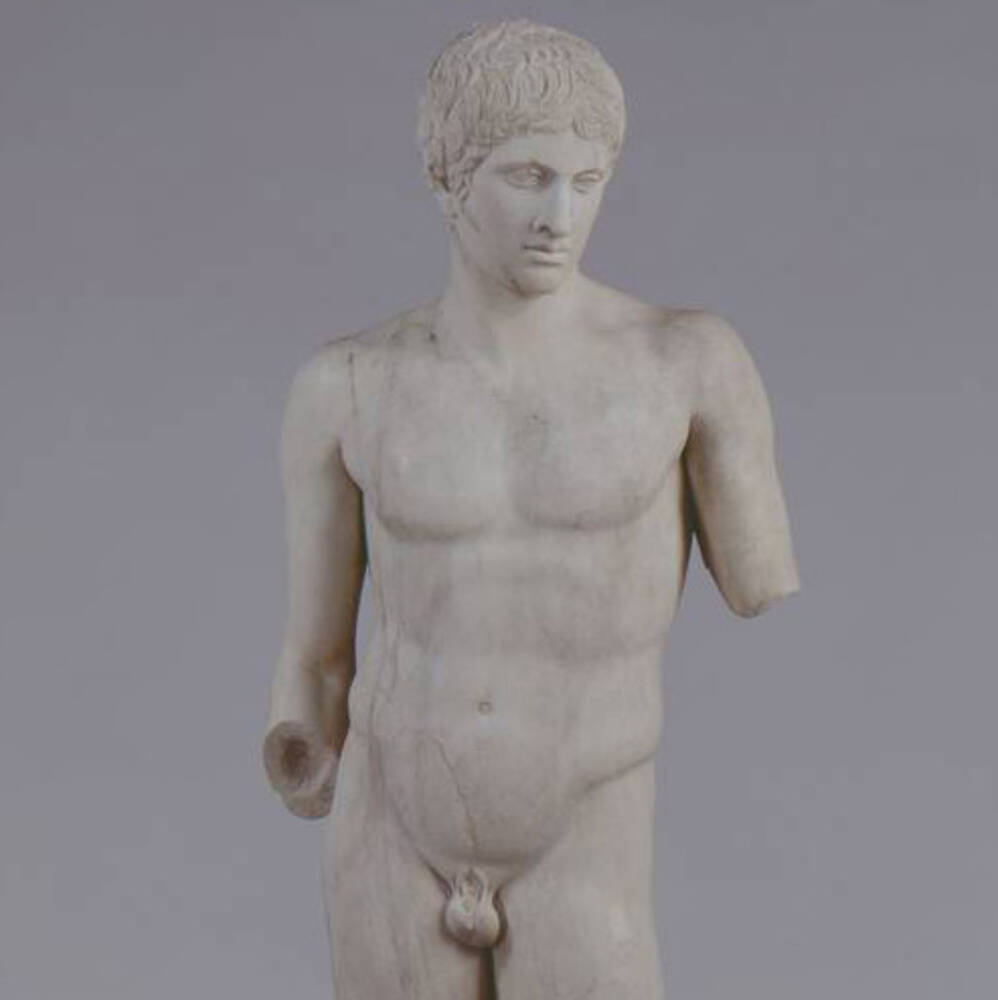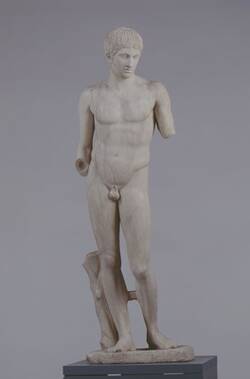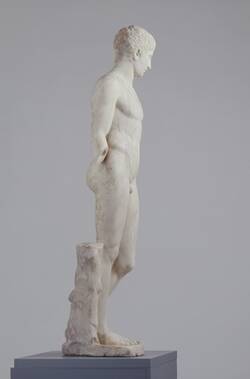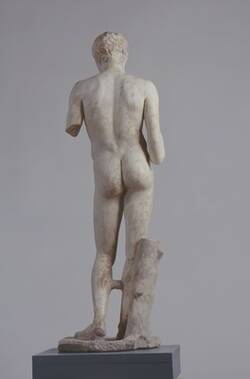This so-called Dresden Boy is based on a copy of the bronze statue of an athlete who had won a victory in an important boys’ competition, perhaps at the Olympic Games, and who was, therefore, honoured by a life-size statue in his home city. The name, birthplace, and discipline of the athlete cannot be identified. The hairstyle indicates that the statue must have been created by the most important sculptor in bronze of the fifth century BCE: Polykleitos of Argos.
Further Media




In the classical world, participants in athletics competitions often turned sports into their career – and life as a professional athlete started very young. Today, scholars believe even 12 years olds were taking part in the ancient Greek Olympics. By then, quite a few already had years of dedicated practice in their disciplines behind them, complete with sophisticated training and nutrition schedules.
Originally, the Olympics had two age groups – boys and men. From age 18, boys moved into the category of adult athletes. Admittedly, there were no documents or birth certificates to prove a person’s age. The division into age groups was based on the experienced eye of specially trained judges able to assess, for example, teenage physical build and beard growth.
Just as for the adult events, the winners in the boys’ competitions were rewarded with fame, honour and generous prizes – with, for example, statues of young athletes erected in temples in their hometown. Winners also enjoyed such benefits as lifelong pensions, free food and tax exemption as well as places of honour in theatre performances.
But the amount of the reward depended on the event and the athlete's age. A boy who came second in the pentathlon, for instance, might be given six large amphora filled with the choicest olive oil, while a young man winning the boxing competition might be given ten times as much.
- Location & Dating
- c. 10 BCE/CE; copy of a lost bronze statue by Polykleitos, c. 420 BCE
- Material & Technique
- Pentelic marble
- Dimenions
- H: 157 cm, B: 53,0 cm, T: 51,0 cm
- Museum
- Skulpturensammlung
- Inventory number
- Hm 088